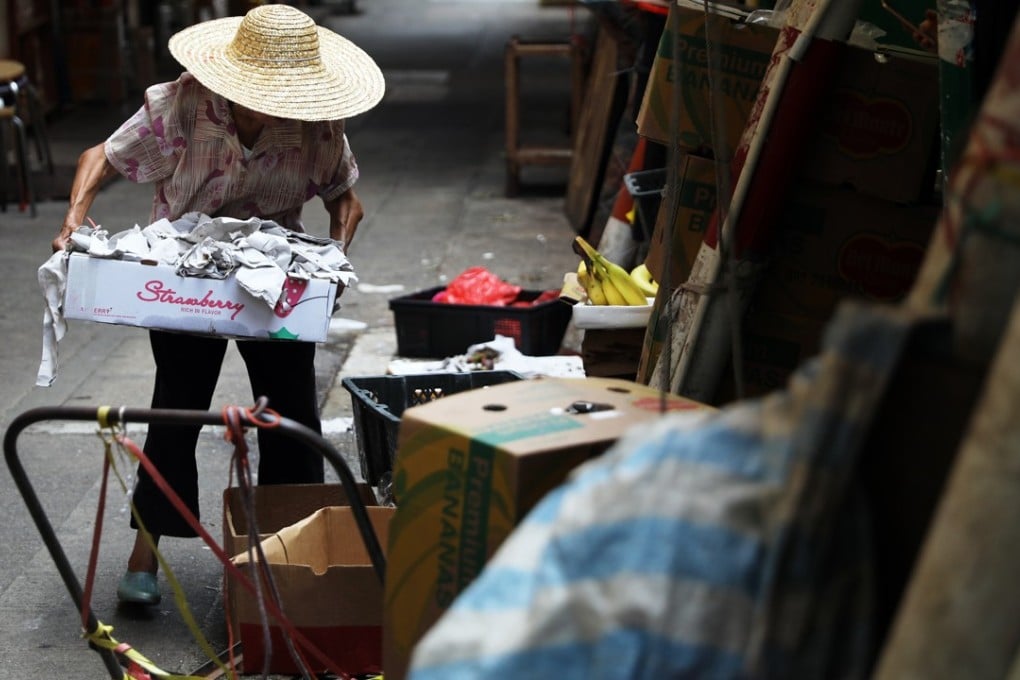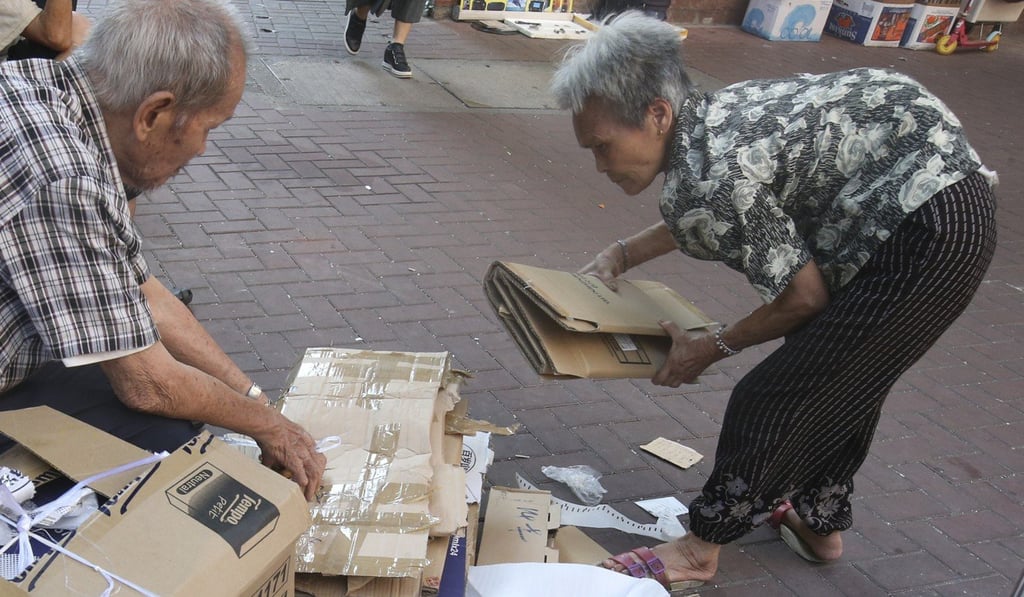New study into Hong Kong’s forsaken ‘cardboard grannies’ finds they earn just HK$716 a month
Study highlights plight of city’s forgotten rubbish collectors, who toil in the shadows from morning to night gathering cardboard and other waste to make ends meet

Eight in every 10 Hongkongers who make a living by scavenging for discarded cardboard and other waste on the city’s streets are women, and most are above the age of 60, according to the largest study ever of this mostly forgotten group.
The survey of 505 scavengers conducted earlier this year by concern group Waste Picker Platform also found that they managed to scrape together just HK$716 (US$91) a month on average from selling scraps for recycling.
Releasing its findings on Monday, the group estimated there were about 2,900 people on the streets of Hong Kong each day collecting rubbish, though it was a rough projection based on visits to 58 of the city’s 320 recycling shops.

“They are mostly elderly people from the grass roots of society,” said Chan Siu-ming, a volunteer for the group.
“They have to face great tensions with different people, including the government’s Food and Environmental Hygiene Department and some members of the public.”